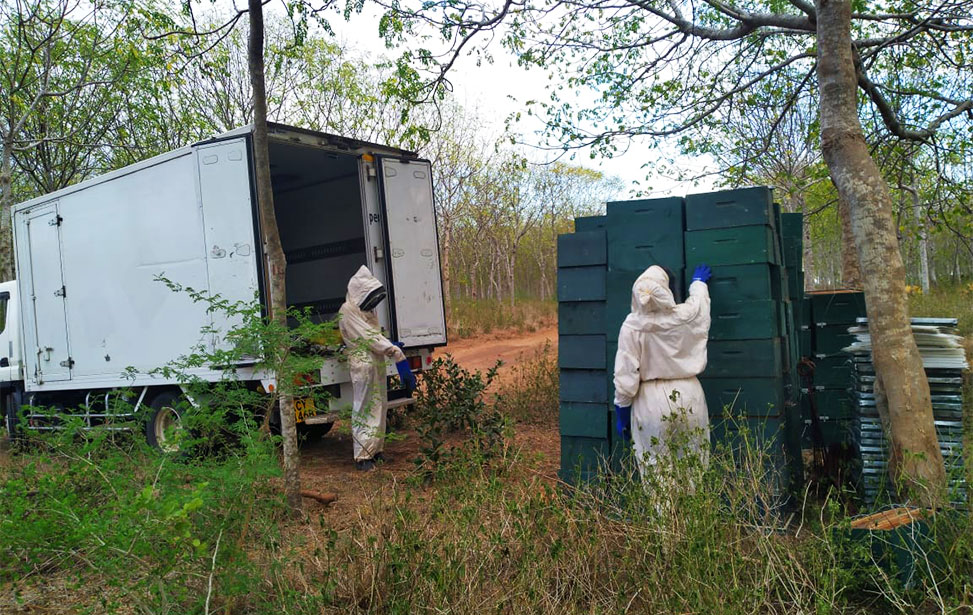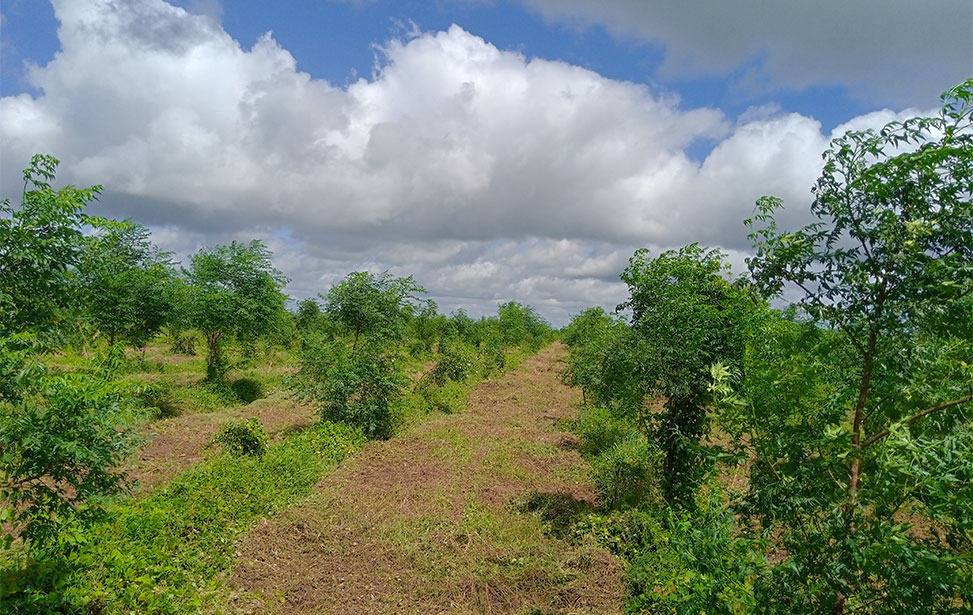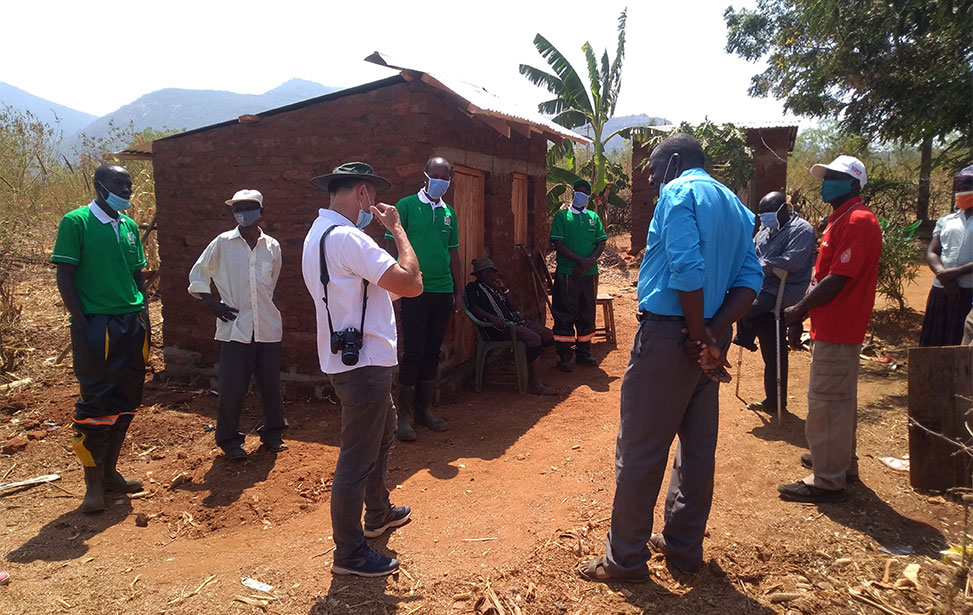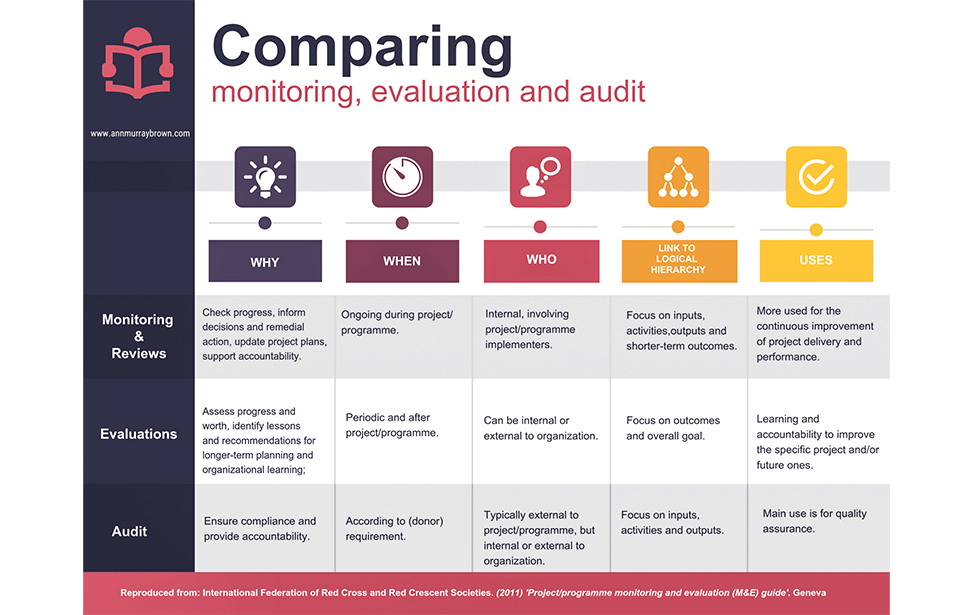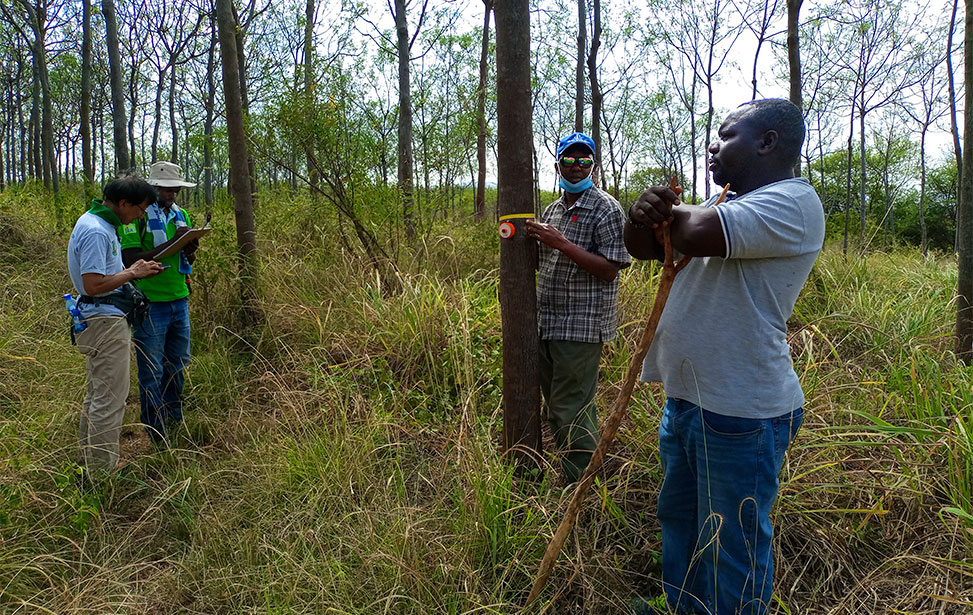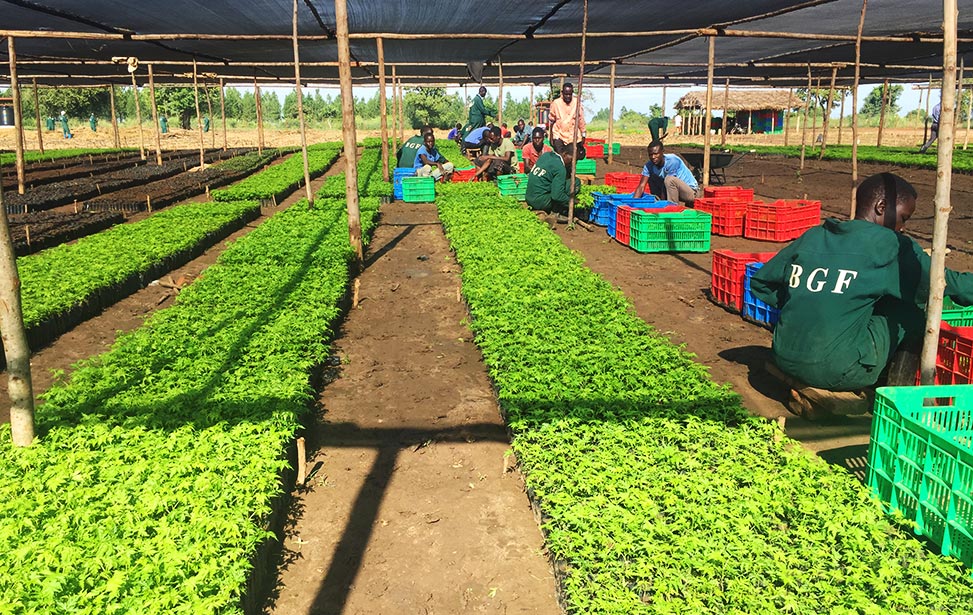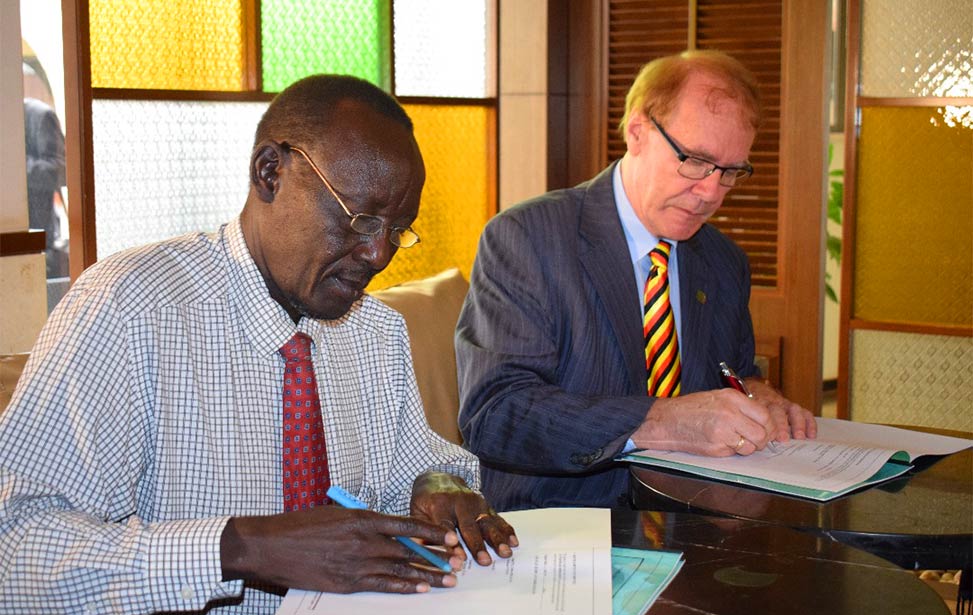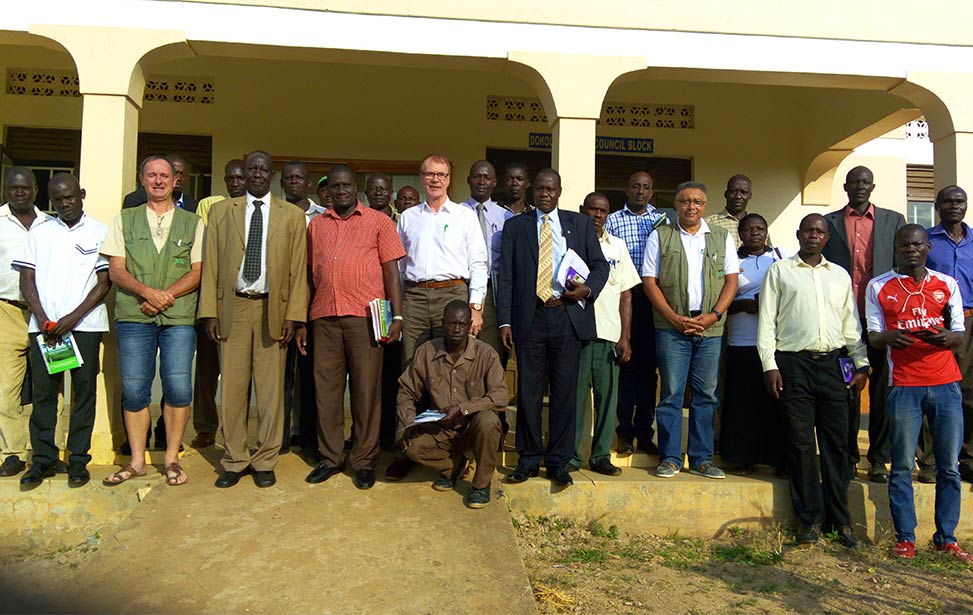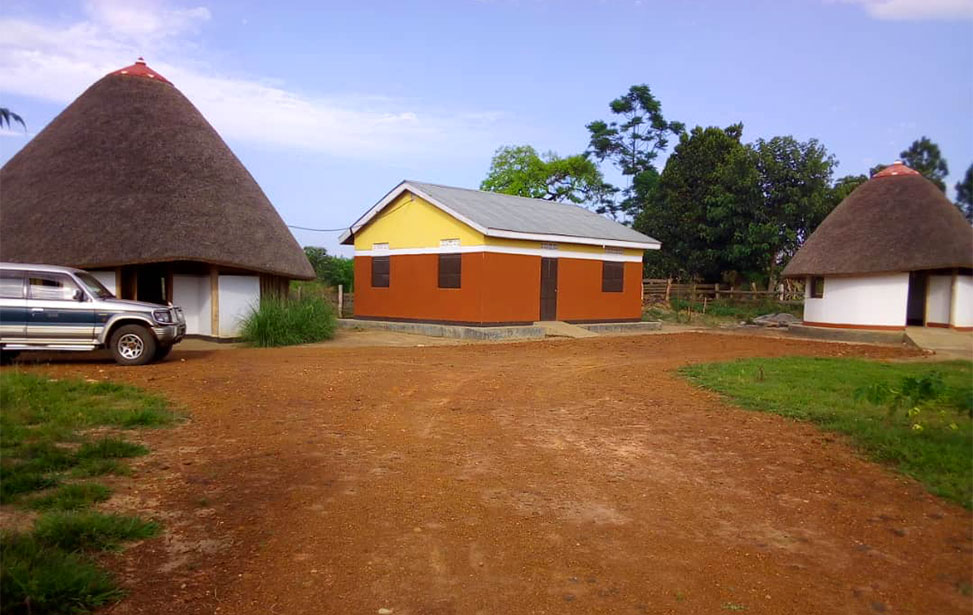
A view of Yele Ikom Can Farmers Association (YICAFA) headquarters at Atur Trading Centre, 4km from Dokolo Town
Photo courtesy: Better Globe Forestry
- Safeena Kassoo
Better Globe Forestry uses a unique model based on social entrepreneurship, which entails planting trees commercially to guarantee sustainability by supporting water projects, tree donations, and microfinance.
In Kenya, Better Globe Forestry is finalizing a memorandum of understanding (MoU) with K-Rep Fedha Services, a reputable and experienced financial institution. Better Globe Forestry is also in the process of supporting the establishment of a third Village Bank (which is a rural microfinance office).
In Uganda, the microfinance landscape is very different. After extensive consultation with key players in the Ugandan microfinance environment, it became clear that the Village Bank would not work in Dokolo, where the planting activities with farmers are being held.
Therefore, Better Globe Forestry opted to establish a revolving fund to support Yele Ikom Can Farmers Association (YICAFA), our legally registered partner organization in the field. The funds revolve over a period of three years, and the aim is to support YICAFA with the creation of a cassava planting project with farmers that is completely in line with Better Globe Forestry’s vision of poverty eradication.
Project leader

Julius P.O. Odwe is awarded with three heroic statuses of a Distinguished Service Order (DSO), Justice of Peace (JoP) and Exemplary Service Order (ESO) Class II.
Photo courtesy: Better Globe Forestry
The leader of the revolving fund project is retired senior police officer Julius P.O. Odwe, who holds the status of Senior Consultant in Security Governance (SCSG). He is trained in six key areas relevant to the operations and management of the proposal, all of which has imbibed him with the relevant knowledge, skills, and competencies to mobilize sustainable production:
- A forester by profession and practice
- Strategic planning
- Project planning and management
- Fundraising and resource mobilization
- Budget expenditure control in the public service
- International project procurement and contract negotiation
He has a proven and successful record of planning and implementing major national and international programs. The examples are the Northern Uganda Emergency Humanitarian Assistance (EHA) and the Peace Recovery and Development Plan (PRDP).
Julius Odwe led the coordination of the 2006-2010 Uganda Police Security Sector Reform (SSR) and the Return, Resettlement and Integration (RRI) of Internally Displaced Persons (IDPs). He was the overall police officer working in coordination with the United Nations and International Agencies. The main outcomes were the elimination of cattle rustling, resettlement of the 1.4 million IDPs and the establishment of permanent presence of the Uganda Police in 40 districts of Northern and Eastern Uganda.
Since 2002, Odwe has been promoting orchards for improved fruit nutrition — applying fruit nutrition concepts to reduce the main causes of malnutrition and dietary gaps in children’s health. While leading YICAFA, he planned and initiated concepts of sustainable production for food security, wealth creation and environment protection. In 2017, he successfully coordinated in Dokolo District the introduction of and the seed multiplication of a new variety of disease-free and disease-resistant cassava.
Better Globe Forestry partnership with YICAFA on cassava project
The cassava project is targeting to benefit farmers in four phases:
- Phase 1: Community mobilization, mindset change and farmer groups development for perception-conception-modeling and practicing. It was also seed multiplication. Farmers were encouraged to produce cassava to increase availability of planting materials.
- Phase 2: Producing cassava for food security. The local residents could then access the yield for food.
- Phase 3: Preparing farmers to produce cassava for value addition and commercialization.
- Phase 4: Bring Better Globe Forestry’s Melia azedarach tree contract farmers to benefit from the cassava production.

YICAFA exhibiting productivity and yield in cassava planted by farmers. In some cases, the yield was over and above the national average, which is about 18 to 30 tons per hectare.
Photo courtesy: Better Globe Forestry
The basic plan was to dedicate 2018 for seed multiplication, 2019 for further seed multiplication in conjunction with food security. 2020 will be dedicated to cover all targets with an emphasis on value addition.
Through these carefully planned activities, YICAFA aims to promote the development of the cassava value chain and to strengthen the agroforestry in Dokolo district.
Outcome of YICAFA cassava production in partnership with Better Globe Forestry
Through YICAFA, as of 2019 Dokolo District had food security in terms of availability of cassava, since roughly 400 acres of cassava have been covered. A continuous supply of cassava roots is being delivered to neighboring districts in order to relieve the food shortage. The National Agricultural Advisory Services is co-opting YICAFA in the plan to reorganize farmers and asked the organization to take the lead in Dokolo district.
Because of this, YICAFA management and its implementation team needed to increase from 8 to 16. YICAFA is also planning to construct a farmer training center intended to empower farmers with knowledge-based economy. Training farmers is the key to success.
YICAFA has pledged a commitment to the Better Globe Forestry partnership to sustain the “promotion of employment, equity, and wealth creation” with the vision “to enable the poor people enjoy a sustainable high quality of life,” through planting mukau and cassava.
In line with the 2018/2019 collaboration with Better Globe Forestry and to conform to the YICAFA master plan, four concepts for a cassava value chain in Dokolo district are being achieved:
- First was “production effect for seed multiplication.” For now, not all the eleven sub-counties were covered in 2018/2019, though indirectly the project may have covered 1,500 farmers. More farmers will be covered in 2020. YICAFA has managed to secure the production effect of seed multiplication.
- Second was “effecting multiplier effect of mass cassava production.” By 2019, YICAFA managed to directly and indirectly support farmers to produce about 1,000 acres of cassava. With an average yield of about 16 tons per acre, production totaled to about 16,000 tons. Therefore, thousands of people were able to benefit from cassava which contributed to abatement of famine in many sub-counties of Dokolo district.
- The third and fourth stages of the cassava value chain are planned for 2020. The third phase, “building commodity-based, market-orientated farmer organizations,” proposes for the best farmer of the best group per parish to be trained as a model parish farmer leader to teach others on the best productive and post-harvest processing under value addition. At least 50 farmer groups will be developed to learn from the model “Farmer Anti-poverty Army for Development" (FAAD). These FAADs will make a solid “Commodity-Based-Market Farmer Groups,” expected to grow into a complete establishment of an Industrial Local Economy for Dokolo.
- Finally, in the fourth stage and beyond 2020, YICAFA’s aim is that the first three stages will make “achieving employment, equity, and wealth through cassava” come to reality in making progress towards sustainability.
Overall, the project is going to generate employment through the creation of:
- A protection/inspection team for clean disease free and available cassava seeds;
- A production team for community-based, resource-orientated farmer organizations;
- A value addition team for commodity-based, market-orientated farmer organizations; and
- A team of skilled, knowledgeable, and competent technological organizations.
Government and private sector organizations have already committed to assist YICAFA in this venture.

